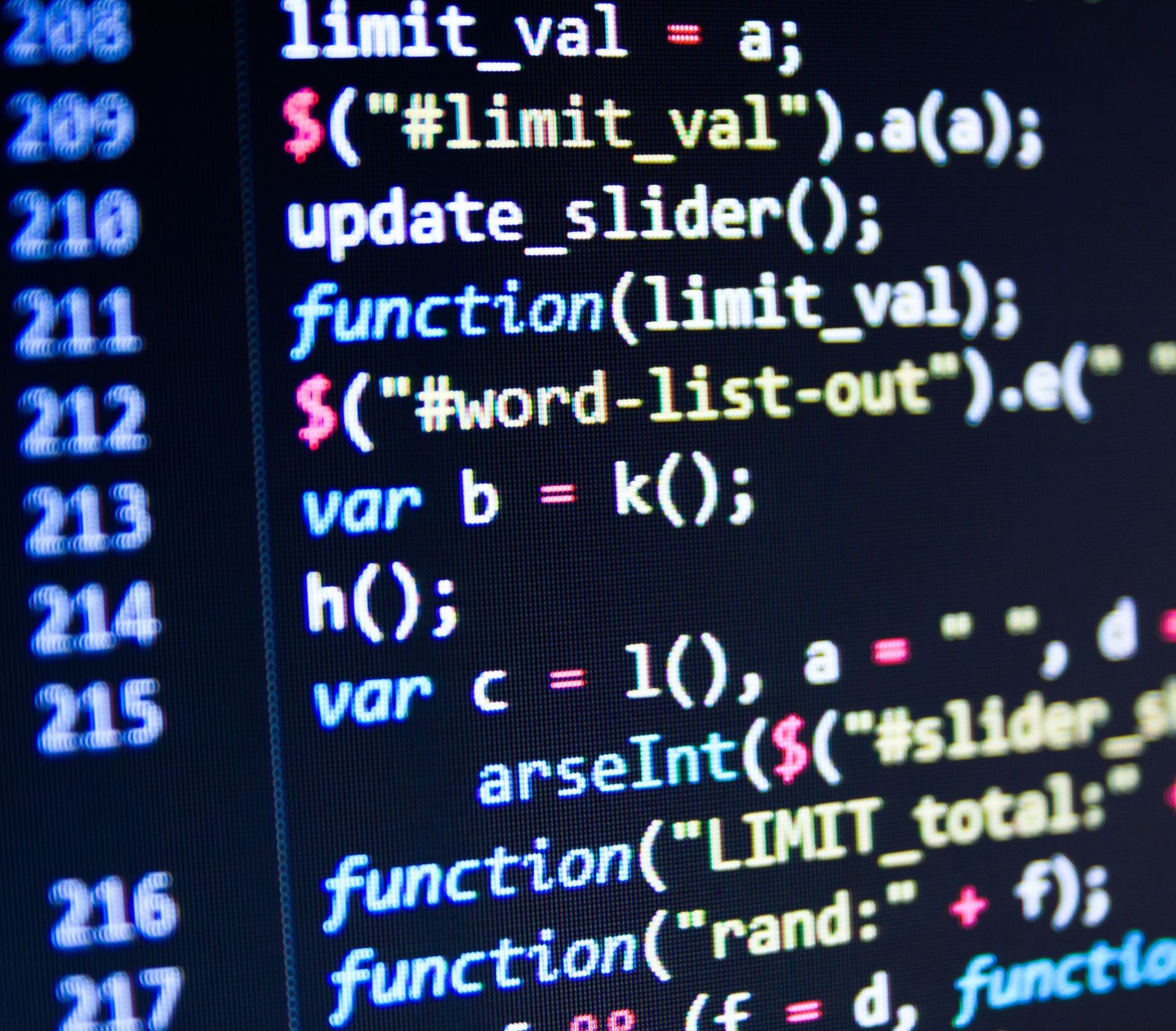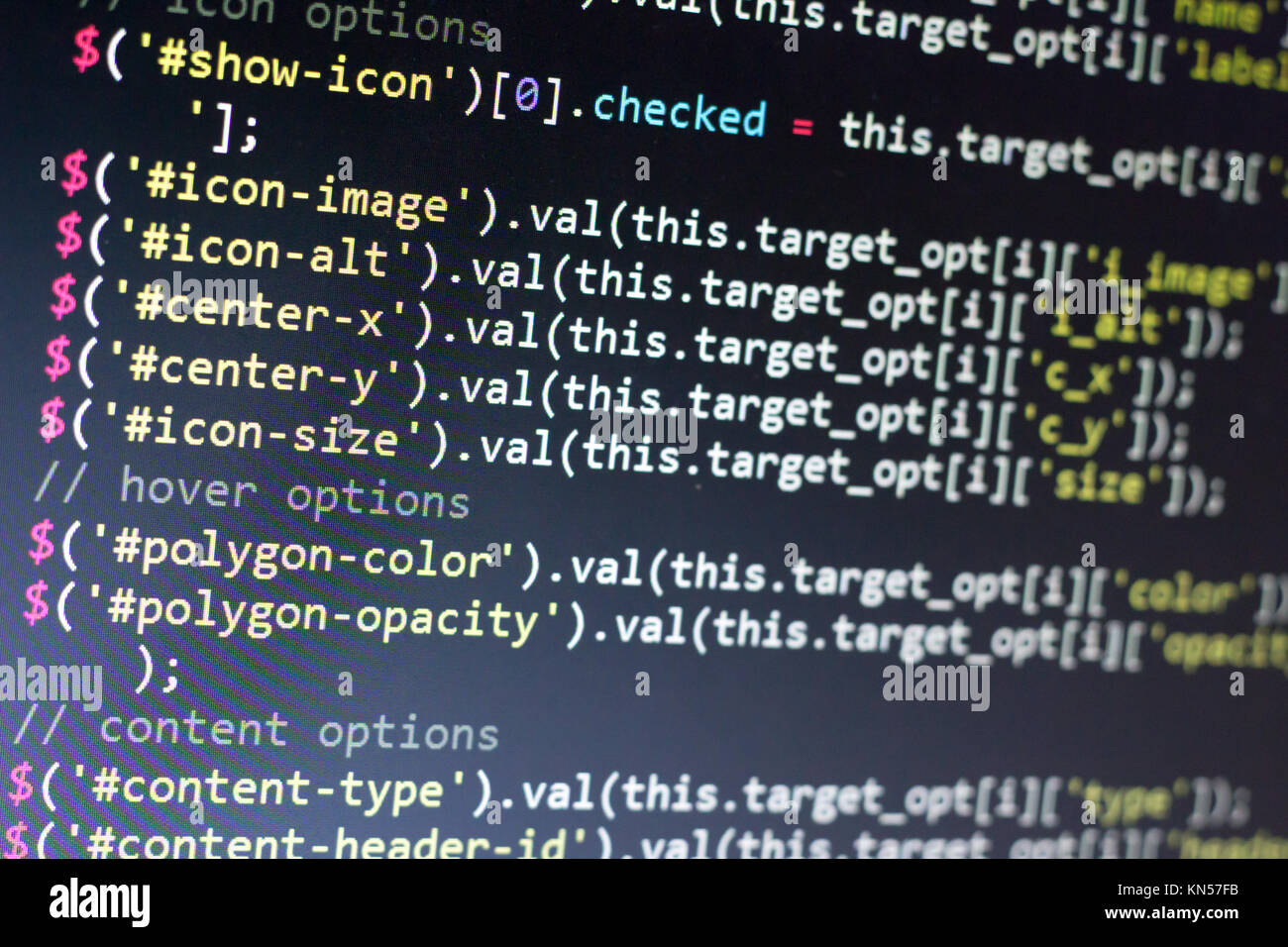Cool Info About Why Does Coding Look So Complicated

Memorysafe Programming Languages Pushed By Biden Administration SC Media
Why Does Coding Look So Complicated? Unraveling the Mystery
1. The Initial Wall of Text
Ever looked at a screen full of code and felt like you were staring at an alien language? You're definitely not alone. The initial impression can be overwhelming. Its a jumble of symbols, words, and strange punctuation marks that seems completely impenetrable. It's like trying to read a book in a language youve never even heard of before. But dont worry, its not as scary as it looks. Think of it like learning any new language it takes time, patience, and a bit of decoding.
One of the biggest reasons coding looks complicated is the unfamiliar syntax. Each programming language has its own set of rules and structures. Its like learning grammar, but for computers. You have to understand how to string together commands in a way that the computer understands. These commands often involve specific keywords, operators, and a rigid structure. While it might seem daunting now, these rules are what make it possible for computers to understand our instructions precisely.
Another contributor to the perceived complexity is the sheer volume of information. There are countless programming languages, each with its own ecosystem of libraries, frameworks, and tools. Its easy to feel lost in the sea of resources, tutorials, and documentation. Its kind of like walking into a massive library with no idea where to start. The trick is to break it down and focus on learning one language or technology at a time. Start with the basics and gradually expand your knowledge.
And let's be real, sometimes the code is complicated! Some problems are inherently complex, requiring intricate algorithms and data structures to solve. But even experienced programmers don't always write perfect code on the first try. Debugging, or finding and fixing errors, is a huge part of the process. It's like being a detective, piecing together clues to figure out where things went wrong. So if youre staring at a screen full of errors, remember that even the pros have been there.

Deconstructing the Layers
2. The Power of Hiding Complexity
One reason why code might appear complex is due to the concept of abstraction. Abstraction is like the magician's trick of making something complex seem simple on the surface. In coding, it involves hiding complex underlying details and presenting a simplified interface to the user. This can make it easier to work with code, but it can also make it harder to understand what's really going on under the hood.
For example, when you use a function in a programming language, you might not need to know all the intricate steps that the function performs. You just need to know what inputs it takes and what output it produces. This simplifies the process of using the function, but it can also obscure the underlying complexity. Think of it like driving a car. You don't need to know how the engine works in detail to be able to drive it.
Furthermore, many software systems are built upon layers of abstraction. Each layer builds upon the previous layer, adding new functionality and simplifying the interface. This can create a complex web of dependencies, making it difficult to trace the flow of execution. It's like peeling an onion — there are so many layers to uncover! However, each layer is designed to make the overall system easier to manage and maintain.
Understanding abstraction is key to unraveling the mystery of complicated code. By learning to recognize and appreciate the different levels of abstraction, you can start to see how the pieces fit together. Its about appreciating the layers of work that others have done to make the system you are working on easier to interact with. It can also help you understand the limitations of the abstractions and when you need to dive deeper to understand the underlying details.

Demystifying Jargon
3. Translating Tech Talk into Plain English
Every field has its own jargon, and coding is no exception. Programmers love to use terms like "algorithm," "syntax," "framework," and "API." These terms can sound intimidating if you're not familiar with them, but they're really just shorthand for common concepts. Its like any other professional environment; they have terms that help them communicate quickly with each other.
The abundance of technical terms can make coding seem more complicated than it is. It's like trying to decipher a secret code. Its important to remember that these terms are simply tools for communicating ideas. Taking the time to learn the jargon can significantly improve your understanding of code. It also allows you to participate more effectively in discussions and collaborate with other programmers.
One way to demystify the jargon is to look up the definitions of unfamiliar terms. There are many online resources, such as dictionaries and glossaries, that can help you understand the meaning of technical terms. Try searching for the term on Google or Wikipedia. Another useful approach is to ask for clarification from other programmers. Most programmers are happy to explain technical terms to newcomers.
And don't be afraid to ask "stupid" questions! Everyone starts somewhere, and there's no shame in admitting that you don't understand something. In fact, asking questions is often the best way to learn. Remember, the goal is to understand the underlying concepts, not to memorize a bunch of fancy words. With a little effort, you can learn the language of programmers and start to feel more comfortable navigating the world of coding.

The Learning Curve
4. Embrace the Journey of Coding
Learning to code isn't something that happens overnight. It's a process that takes time, effort, and persistence. Its like learning to play a musical instrument — you won't be able to play a concerto on your first day. The learning curve can be steep at times, but it's important to remember that everyone starts somewhere. Even experienced programmers were once beginners. They had to learn the basics, practice their skills, and overcome challenges.
One of the biggest mistakes that beginners make is trying to learn too much too quickly. It's tempting to jump into advanced topics before you've mastered the fundamentals, but this can lead to frustration and discouragement. Its like trying to run a marathon without training; you're likely to burn out before you reach the finish line. A better approach is to focus on building a solid foundation of knowledge. Start with the basics and gradually work your way up to more advanced topics.
Consistency is key to success in coding. It's better to practice for a little bit every day than to cram for hours on the weekends. Regular practice helps to reinforce your learning and build muscle memory. It also allows you to identify gaps in your knowledge and address them before they become bigger problems. So, set aside some time each day or week to work on your coding skills.
And don't be afraid to make mistakes! Mistakes are a natural part of the learning process. In fact, they can be valuable learning opportunities. When you make a mistake, take the time to understand why it happened. This will help you avoid making the same mistake in the future. Embrace your mistakes and learn from them, and you'll be well on your way to becoming a proficient coder.

Coding All Questions Answered
Making Sense of It All
5. From Confusion to Clarity
So, youre ready to tackle the coding beast? Great! Here are some practical tips to help you make sense of it all and start your coding journey with confidence. First, choose a language that suits your goals. Are you interested in web development, mobile apps, or data science? Each area has its preferred languages. Python is a great starting point for beginners because its relatively easy to read and has a large community of support.
Once you've chosen a language, find a good learning resource. There are tons of online courses, tutorials, and books available. Look for resources that are well-structured and provide plenty of hands-on practice. Sites like Codecademy, freeCodeCamp, and Udemy offer excellent introductory courses. Dont be afraid to try a few different resources to see which one works best for you.
Next, start with small projects. Don't try to build a complex application right away. Instead, focus on building simple programs that demonstrate the basic concepts. Try writing a program that calculates the area of a rectangle, or a program that converts temperatures from Celsius to Fahrenheit. As you gain confidence, you can gradually increase the complexity of your projects. Start small, grow big!
Finally, don't be afraid to ask for help! The coding community is incredibly supportive. There are forums, online communities, and meetups where you can connect with other programmers and ask for advice. Stack Overflow is a great resource for finding answers to common coding questions. Remember, everyone starts somewhere, and there's no shame in asking for help. Now, go forth and conquer the code!

FAQ
6. Your Questions Answered
Q: Is coding really that hard to learn?A: It can be challenging, but it's definitely not impossible! With dedication and the right resources, anyone can learn to code. Think of it like learning a new language or any other skill — it takes time and effort.
Q: Which programming language should I learn first?A: Python is a popular choice for beginners because it's relatively easy to read and has a large community of support. JavaScript is also a good option if you're interested in web development. The best language to learn depends on your goals and interests, so do some research and find one that appeals to you.
Q: How long does it take to become a proficient coder?A: There's no magic number, but it generally takes several months to a year of consistent effort to become proficient. It depends on your learning style, the amount of time you dedicate to coding, and the complexity of the projects you're working on. The key is to keep practicing and never stop learning!